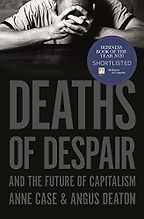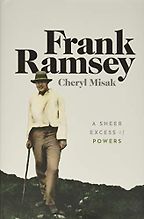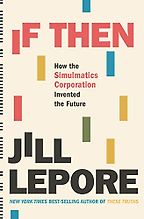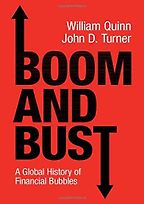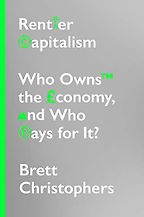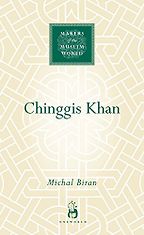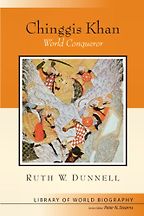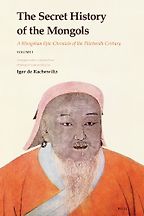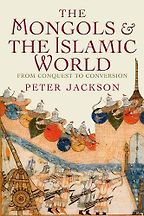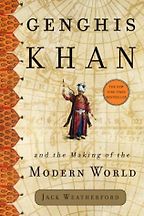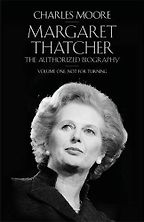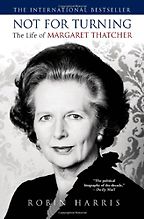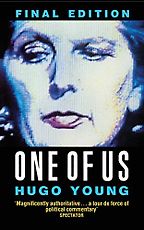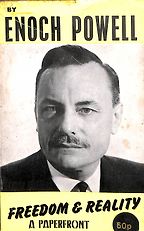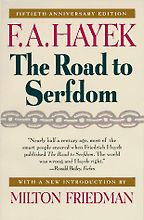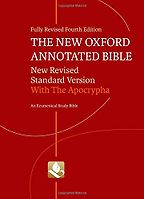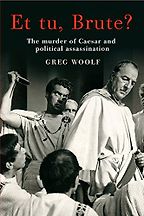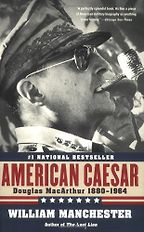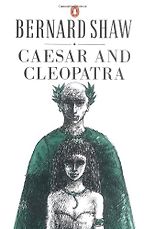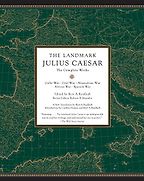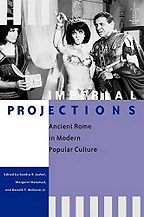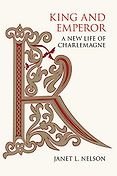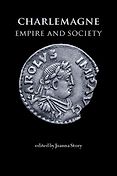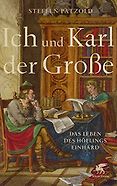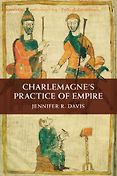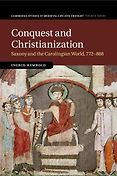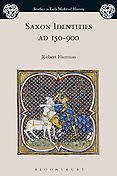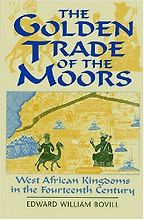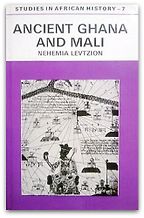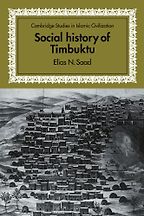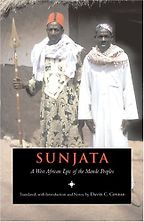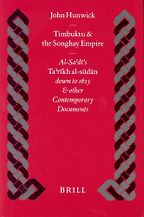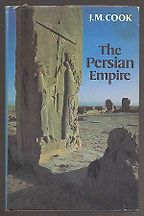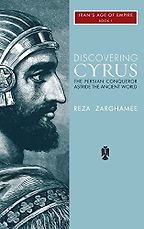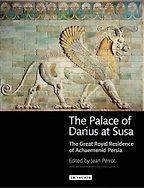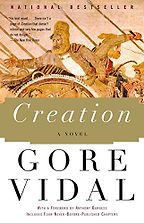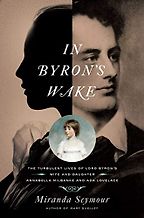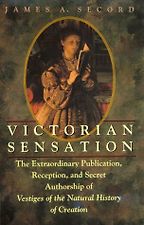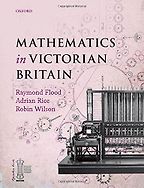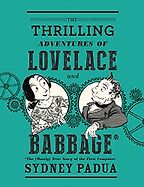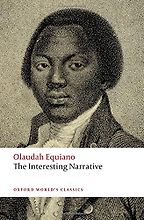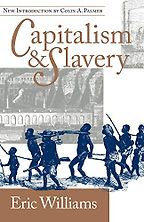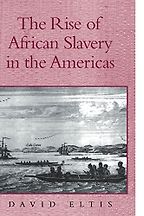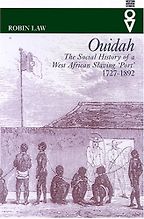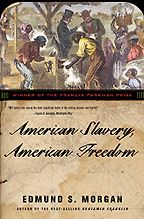Interviewer
Benedict King
Interviews by Benedict King
-

1
Deaths of Despair and the Future of Capitalism
by Angus Deaton & Anne Case -

2
Frank Ramsey: A Sheer Excess of Powers
by Cheryl Misak -

3
If Then: How the Simulmatics Corporation Invented the Future
by Jill Lepore -

4
Boom and Bust: A Global History of Financial Bubbles
by John D. Turner & William Quinn -

5
Rentier Capitalism: Who Owns the Economy, and Who Pays for It?
by Brett Christophers
The Best Economics Books of 2020, recommended by Diane Coyle
The Best Economics Books of 2020, recommended by Diane Coyle
The global economy has been hit by another massive and unexpected shock this year in the form of the pandemic, which is already having knock-on effects on how people think about economics. Here, Professor Diane Coyle of Cambridge University chooses the best economics books published in 2020.
The best books on Chinggis Khan, recommended by Timothy May
He was born Temüjin and was afraid of dogs as a child. He went on to create the largest land empire the world has ever known, but was more than just a bloodthirsty conqueror. Timothy May, Professor of Eurasian History at the University of North Georgia and author of a number of books on the Mongol Empire, separates the facts from the myths and explains how the modern world would have looked very different without Genghis or, more accurately, Chinggis Khan.
The best books on Margaret Thatcher, recommended by Simon Heffer
Simon Heffer, journalist, historian and friend of Margaret Thatcher, recommends the best books to read to gain an understanding of the United Kingdom’s first female prime minister—and explains why she was the most influential British leader of the modern era.
The best books on Jerusalem, recommended by Simon Sebag Montefiore
Jerusalem is one of the most beautiful cities in the world and a place of longing for three faiths—and yet we know it mostly as a place of strife and conflict. British historian Simon Sebag Montefiore, author of Jerusalem: the Biography, recommends books that capture the historical ups and downs of this ever-changing city, but also its vitality, including its irresistible cuisine.
-

1
Et Tu, Brute? The Murder of Caesar and Political Assassination
by Greg Woolf -

2
American Caesar: Douglas MacArthur 1880-1964
by William Manchester -

3
Caesar and Cleopatra
by George Bernard Shaw -

4
The Complete Works of Julius Caesar
by Julius Caesar -

5
Imperial Projections in Modern Popular Culture
by Sandra R. Joshel (Ed)
The best books on Julius Caesar, recommended by Peter Stothard
The best books on Julius Caesar, recommended by Peter Stothard
Julius Caesar was a populist politician and general of the late Roman Republic who immortalized himself not only by his beautiful writing about his military exploits, but also by the manner of his death. Here, British journalist and critic Peter Stothard, author of The Last Assassin, chooses five books to help you understand both the man and what motivated him and some of the people who have been inspired by him in the 2,000 years since he died.
-

1
King and Emperor: A New Life of Charlemagne
by Janet Nelson -

2
Charlemagne: Empire and Society
by Joanna Story (editor) -

3
Ich und Karl der Große: Das Leben des Höflings Einhard
by Steffen Patzold -

4
Charlemagne's Practice of Empire
by Jennifer Davis -

5
Conquest and Christianization: Saxony and the Carolingian World, 772–888
by Ingrid Rembold -

6
Saxon Identities, AD 150-900
by Robert Flierman
The best books on Charlemagne, recommended by Carine van Rhijn
The best books on Charlemagne, recommended by Carine van Rhijn
We call him Charlemagne, but it was not a name that was used in his own lifetime. His conquests stretched across vast swathes of Europe, but he probably didn’t set out to become an emperor. Much has been written about him, but very little is known. Dutch historian Carine van Rhijn, a lecturer at the University of Utrecht, recommends the best books on Charles, King of the Franks.
-

1
Golden Trade of the Moors: West African Kingdoms in the Fourteenth Century
by E.W. Bovill -

2
Ancient Ghana and Mali
by Nehemiah Levtzion -
3
Social History of Timbuktu: The Role of Muslim Scholars and Notables 1400-1900
by Elias Saad -

4
Sunjata: A West African Epic of the Mande Peoples
by David C. Conrad -

5
Timbuktu and the Songhay Empire: Al-Sa'di's Ta'rikh Al-Sudan down to 1613 and Other Contemporary Documents
by John Hunwick
The best books on The Ghana, Mali and Songhai African Empires, recommended by Michael Gomez
The best books on The Ghana, Mali and Songhai African Empires, recommended by Michael Gomez
Long before the Europeans arrived in the 16th and 17th centuries, sub-Saharan West Africa saw the emergence of a series of African empires that lasted for centuries and stretched over vast swathes of the continent. They were known as the Ghana, Mali and Songhai Empires. Here, historian Michael Gomez discusses what led to their greatness, what sustained them and why they fell.
-

1
The Persian Empire
by J M Cook -

2
Discovering Cyrus: a Persian Conqueror Astride the Ancient World
by Reza Zaghamee -

3
The Persian Empire: A Corpus of Sources from the Achaemenid Period
by Amélie Kuhrt -

4
The Palace of Darius at Susa: The Great Royal Residence of Achaemenid Persia
by Jean Perrot -

5
Creation
by Gore Vidal
The best books on The Achaemenid Persian Empire, recommended by Lloyd Llewellyn-Jones
The best books on The Achaemenid Persian Empire, recommended by Lloyd Llewellyn-Jones
At the height of its greatness, the Achaemenid Persian Empire was the largest empire the world had ever known. Too often it is given merely a villainous walk-on part in the heroic history of classical Greece. Here, historian Lloyd Llewellyn-Jones explains why that needs correcting, looks at its cultural achievements and discusses why the first Persian empire is worth studying in its own right and on its own terms.
-

1
In Byron's Wake: The Turbulent Lives of Lord Byron's Wife and Daughter: Annabella Milbanke and Ada Lovelace
by Miranda Seymour -

2
Victorian Sensation: The Extraordinary Publication, Reception and Secret Authorship of 'The Vestiges of the Natural History of Creation'
by James Secord -

3
Mathematics in Victorian Britain
by Adrian Rice, Raymond Flood & Robin Wilson -

4
The Thrilling Adventures of Lovelace and Babbage
by Sydney Padua -

5
Middlemarch
by George Eliot
The best books on Ada Lovelace, recommended by Ursula Martin
The best books on Ada Lovelace, recommended by Ursula Martin
Ada Lovelace (1815-1852) has become an iconic figure for women in science and is often credited with the invention of modern computing. But, as Ursula Martin—mathematician, computer scientist and Lovelace biographer—explains, all of that is a bit overblown. The Lovelace myth obscures the truth about a woman who was certainly a very brilliant mathematician, but who was also often frustrated in her scientific ambitions, in poor health and unhappy.
-

1
The Interesting Narrative
by Olaudah Equiano -

2
Capitalism and Slavery
by Eric Williams -

3
The Rise of African Slavery in the Americas
by David Eltis -
4
Ouidah: The Social History of a West African Slaving Port 1727-1892
by Robin Law -

5
American Slavery, American Freedom: The Ordeal of Colonial Virginia
by Edmund S Morgan
The best books on The Slave Trade, recommended by William A. Pettigrew
The best books on The Slave Trade, recommended by William A. Pettigrew
In the 17th and 18th century millions of Africans were shipped across the Atlantic to the Americas as slaves. This trade took place at the same time as ‘liberal’ ideas about the importance of human freedom took root in Great Britain and North America. Here, historian William A. Pettigrew recommends five books to help understand the slave trade, how it was established, why it flourished and why it was eventually abolished.
